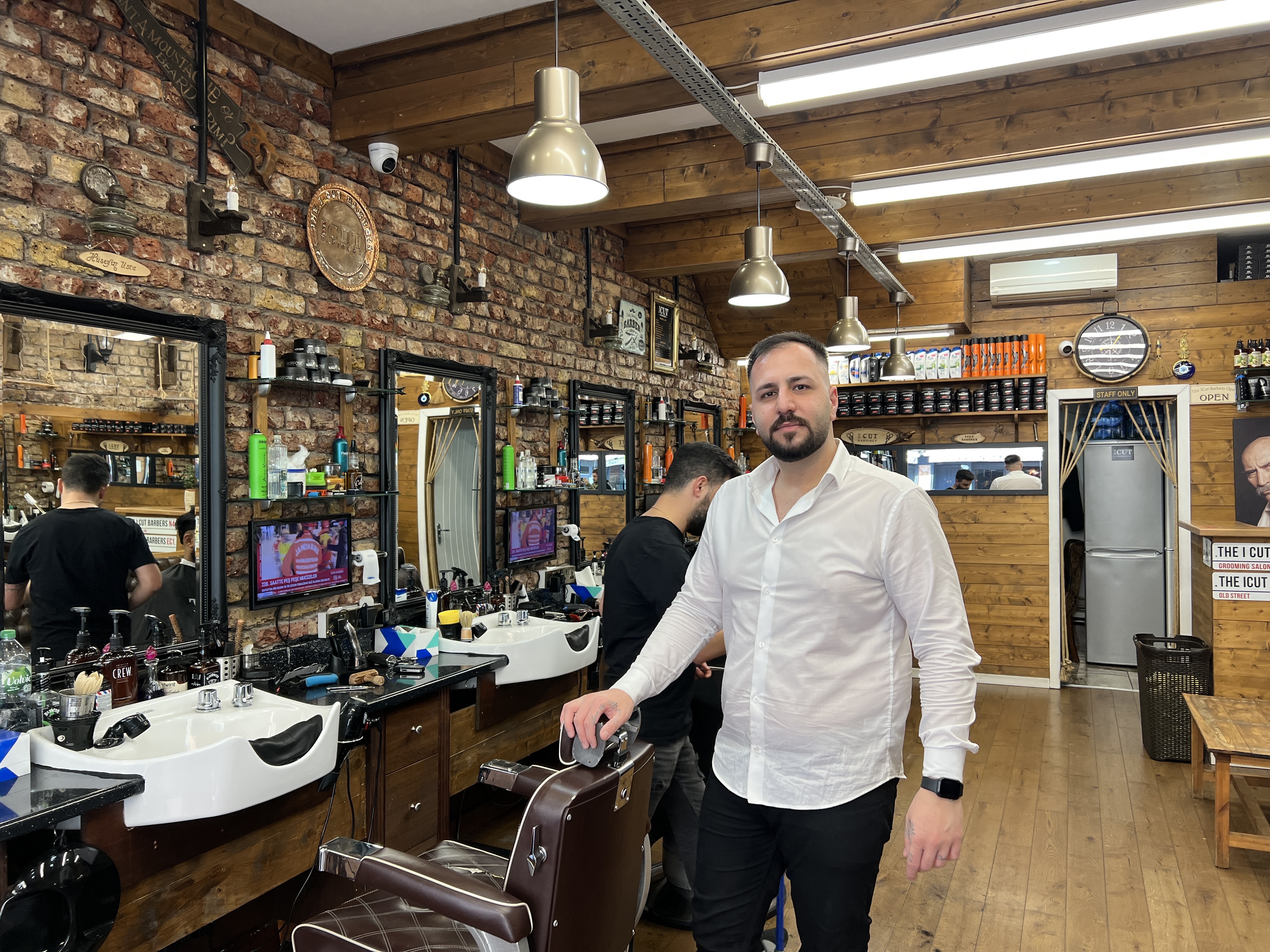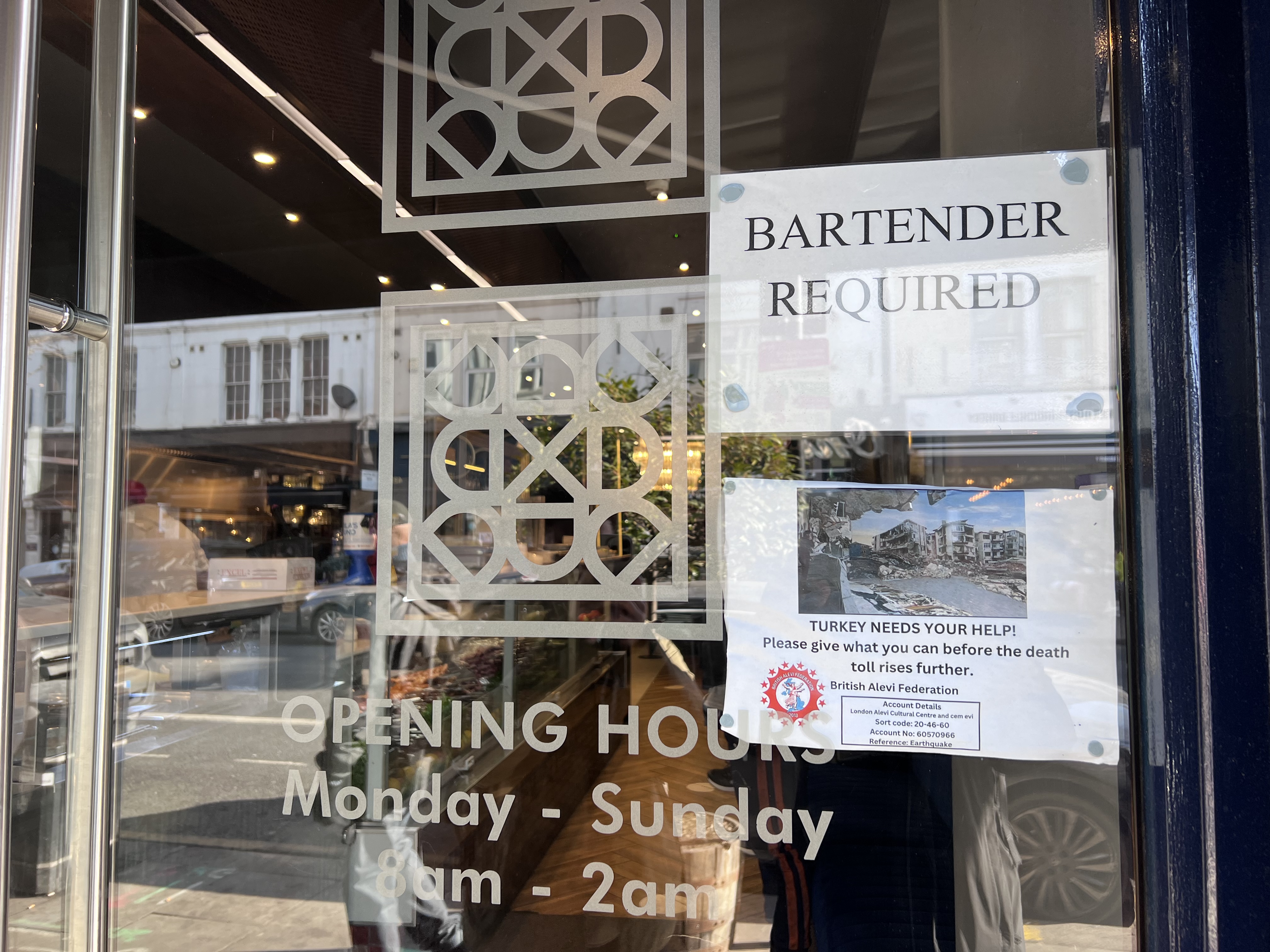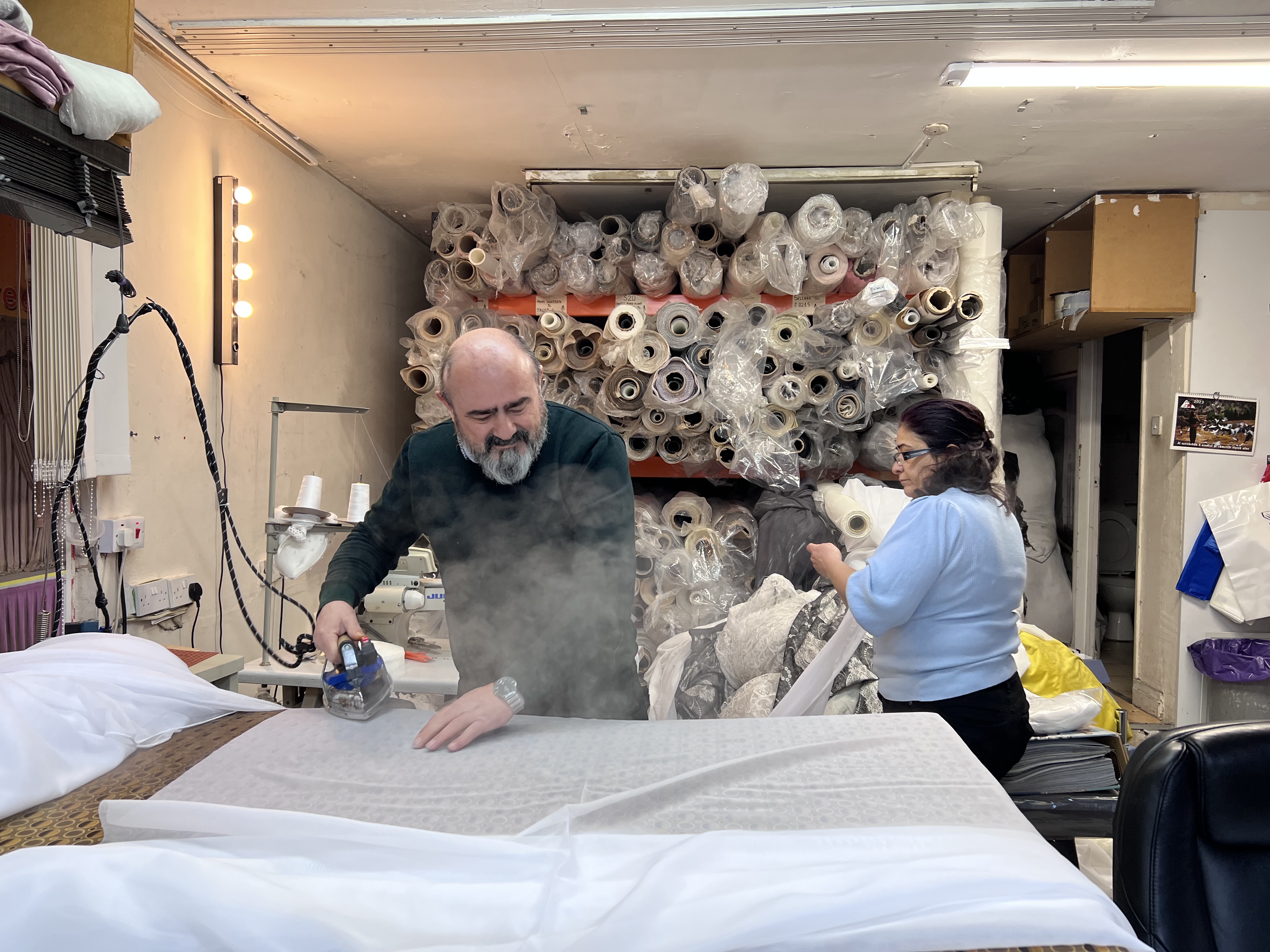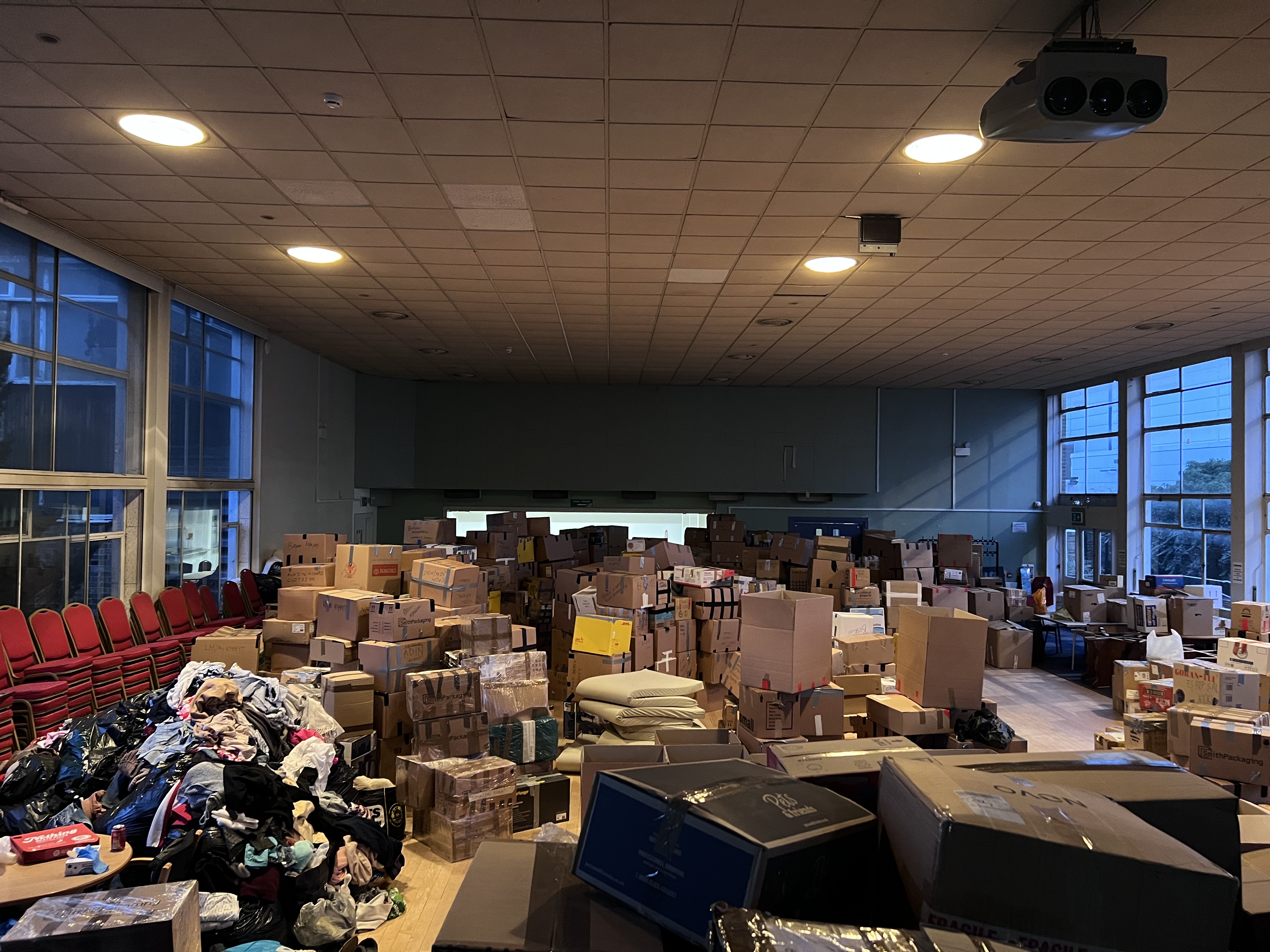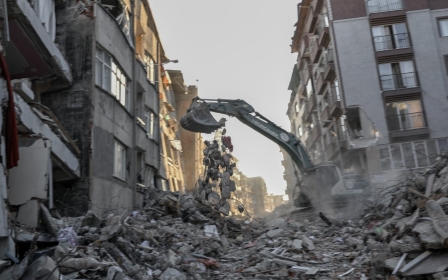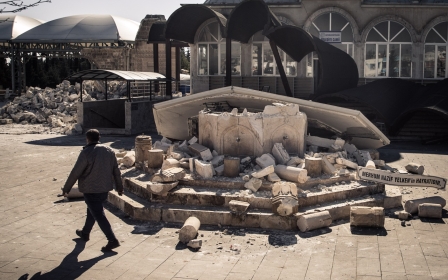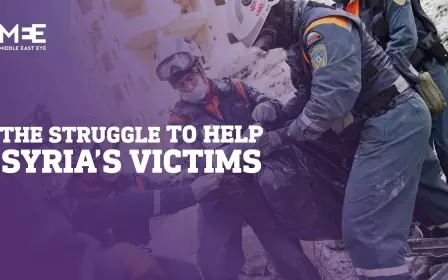Turkey-Syria earthquake: Turks and Kurds in London hurry to send aid to quake victims
When Zeinab first heard about the devastating earthquake that struck her homeland, she was on her way to work.
Unsure of how bad the situation was, Zeinab put her headphones on and listened to music as she walked to the bakery where she works on Green Lanes in north London - the home of Britain’s Kurdish and Turkish-speaking community.
But when videos and pictures began to flood social media of people looking for their relatives, Zeinab began to realise how bad the situation was.
'I have family who were close to the earthquake's epicentre, so the pain felt very real'
- Zeinab, north London
“I have family who were close to the earthquake's epicentre, so the pain felt very real,” said Zeinab as she served coffee and baklava native to her hometown of Gaziantep.
“The moment I realised how bad it was, the first thing I did was call my mum to ask how our relatives are doing in Antep.”
New MEE newsletter: Jerusalem Dispatch
Sign up to get the latest insights and analysis on Israel-Palestine, alongside Turkey Unpacked and other MEE newsletters
Fortunately for Zeinab, she lost no relatives, but 10 days after the tragic earthquake that struck Turkey and Syria, many on London’s Green Lanes are mourning the death of friends and family or the loss of their livelihoods.
While Turkish restaurants on Green Lanes in north London that are named after cities in the south of Turkey, like Diyarbakir, serve customers, aunties sit beside windows flapping wheels of dough to make gozleme - a staple snack item across Turkey.
Nearly every shop on Green Lanes in north London has a poster or sign urging customers to donate to the relief effort in Turkey. The Turkish disaster agency Afad said at least 35,000 people had died at the time of writing, with the death toll expected to go higher.
But with many of Turkey’s diaspora community in Britain hailing from Cyprus and southern Turkey, the death and destruction from last week's earthquake feel close to home.
Britain’s census data says nearly half a million Turkish-speaking people live in the UK, with the majority being Kurdish or Turkish Cypriot.
Can Emre, a barber on Green Lanes, brushes his previous client’s hair from the floor as he waits for his next customer.
Taking a seat on the red barber’s chair, Emre looks in despair at the small TV screens in his shop that show live coverage of the rescue effort in Turkey.
“Look at these people. Some are still under the rubble, and the government wants to dig it up casually like nothing happened,” said Emre, whose family comes from Tunceli, also known as Dersim, near the earthquake's epicentre.
“They shut down the internet, making it difficult for people to contact their loved ones. They took their time getting to the disaster area. Maybe the response was slow because it was in the south [of Turkey].”
Can Emre, like many who spoke to Middle East Eye on Green Lanes, thinks the delays in rescue workers reaching the affected areas are due to the areas affected by the earthquake being home to large Kurdish communities - just like Green Lanes.
“Being here [in London] has been difficult because people have it so tough out there. The only thing we can do is donate money, give clothes, and pray,” said Emre.
Down the road at the tail end of Green Lanes lies the Turkish Cypriot Community Association (TCCA).
The first few days after the earthquake struck southern Turkey and Syria, the TCCA’s driveway was full of people holding sleeping bags, tents, and bags of clothes for earthquake victims.
Ten days on, boxes of tents still line up outside the office of Erim Metto, CEO of the TCCA, who has been helping coordinate donations.
Some people urged the TCCA not to give their donations to Syrians, but Metto relented, saying everyone is in need - irrespective of whether they are Syrian or Turkish.
He remembers feeling overwhelmed as friends and families shared stories of losing loved ones in Turkey.
“We just had bags upon bags of clothes and supplies coming to us like a conveyor belt,” said Metto as he showed MEE how halls were filled up with donations.
“It was mad but heartwarming seeing so many people come out for us that day. I had nearly 122 missed calls just that morning from people wanting to find out how they could give.”
But with the bags of clothes piling up and volunteers working through the night on little sleep, Metto needed a bigger storage facility for the donations.
After calling the leader of Haringey Council and fellow Turkish Cypriot, Peray Ahmet, the council offered Metto and other groups a warehouse to store the clothes.
Since then, Metto has had to tell people to stop donating clothes as the need has shifted to shelter and food for the survivors.
“We have had patrons and friends telling us they have lost loved ones who are living in cars or makeshift tents,” as he takes off his tinted glasses in disbelief.
'One friend said they lost twenty family members on Monday. Just imagine the trauma they’re facing'
- Erim Metto, Turkish Cypriot Community Association
“One friend said they lost twenty family members on Monday. Just imagine the trauma they’re facing.”
Walking through the tower of boxes, Metto points out the different sections of the warehouse. One corner has food. The other corner has sanitary products and shelter items.
Having seen the destruction of the previous earthquake in Turkey in 1999, Metto has an idea of the scale of help needed for survivors in Syria and Turkey.
“These people will need trauma support. No question. They have lost limbs, loved ones, and livelihoods. But the immediate help they need is shelter and tents,” said Metto.
“The community needs to listen closely to what people need because as the issue becomes less prevalent on the news, the support we’re getting will also slowly go, so it’s important we tap into what we can before that.”
Middle East Eye delivers independent and unrivalled coverage and analysis of the Middle East, North Africa and beyond. To learn more about republishing this content and the associated fees, please fill out this form. More about MEE can be found here.


